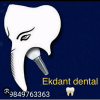Facial injuries resulting from accidents, sports impacts, and various incidents can lead to maxillofacial trauma, requiring specialized care and surgical intervention. Maxillofacial surgery plays a crucial role in restoring both aesthetics and functionality for patients who have experienced such trauma. In this blog, we’ll provide an overview of maxillofacial surgery, highlighting its significance and the procedures involved.
Understanding Maxillofacial Trauma: Maxillofacial trauma involves fractures, soft tissue injuries, and dental damages. The impact of such trauma can extend beyond physical discomfort, affecting speech, chewing, and self-esteem. To address these challenges, specialized surgeons perform various procedures tailored to each patient’s unique needs.
The Surgical Procedures:
- Fracture Reduction: This procedure involves realigning fractured bones and stabilizing them using methods like wires, plates, or screws. Accurate reduction is essential to restore facial symmetry and proper function.
- Oral Restoration Surgery: In cases of soft tissue injuries and fractured jaws, oral surgeons meticulously repair and reconstruct affected areas. This aids in restoring facial aesthetics, chewing ability, and overall oral health.
- Tooth Reimplantation: When teeth are knocked out due to trauma, rapid reimplantation is crucial for success. Surgeons carefully reinsert the teeth and ensure they are properly positioned for optimal healing.
Expertise and Collaboration: Maxillofacial surgery requires a multidisciplinary approach. Oral and maxillofacial surgeons collaborate closely with dentists, orthodontists, and other specialists to deliver comprehensive care. The goal is to provide patients with the best possible outcomes, both in terms of aesthetics and function.
Benefits of Timely Intervention: Seeking timely surgical intervention after maxillofacial trauma is vital. Early treatment minimizes the risk of complications, reduces pain, and enhances the chances of complete recovery. It’s crucial to consult a skilled oral surgeon to evaluate the extent of trauma and determine the most suitable course of action.
In conclusion, maxillofacial surgery stands as a pivotal solution for those dealing with facial trauma. By employing advanced techniques, skilled surgeons restore not only physical well-being but also the patient’s confidence and quality of life. Timely intervention and comprehensive care pave the way for successful recovery, highlighting the importance of seeking specialized assistance after maxillofacial trauma.
SEO Keywords:
- Maxillofacial surgery
- Facial trauma recovery
- Fracture reduction
- Oral restoration surgery
- Tooth reimplantation
- Facial aesthetics
- Functionality restoration
- Timely intervention
- Multidisciplinary approach
- Maxillofacial trauma care


